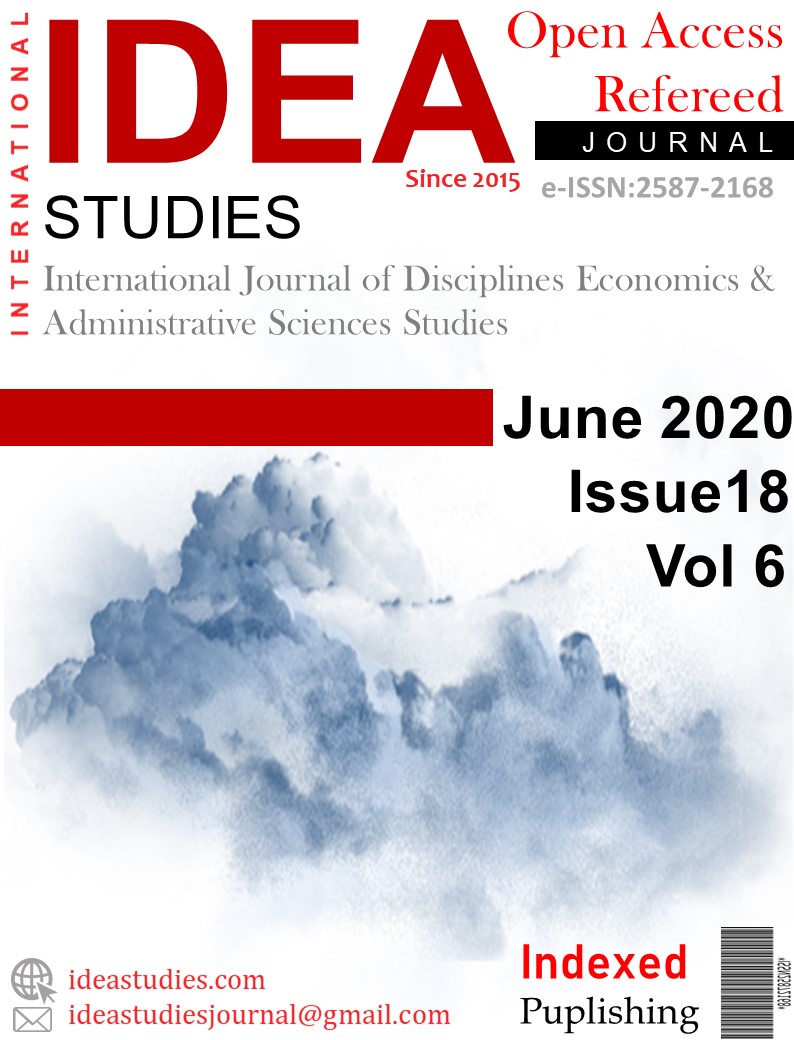Author :
Abstract
Bilim camiasında kalitenin örgütsel kültür ile bağlantılı olduğu anlayışı kalite tartışmalarında önem kazanırken, yükseköğretim kurumlarında "kalite kültürü" olgusunun temel araştırma ve kavramsal çalışmalarının Türkiye’de az olduğu söylenebilir. Bu çalışmada, mevcut literatürün ışığında “yükseköğretim kurumlarında kalite kültürü” olgusunu tartışarak yükseköğretim kurumlarına yönelik bir kalite kültürü modeli incelenmiştir. Bu bağlamda, literatüre katkı sağlayacağı düşünülen bu çalışmanın amacı, yükseköğretim kurumlarında “yükseköğretimde kalite kültürü”nün hangi anlayışa doğru geliştiği konusunda farkındalık yaratmak ve gelecek çalışmalar için öneriler sunmaktır.
Keywords
Abstract
Fundamental researches and conceptual studies of “quality culture” phenomenon institutions of higher education in Turkey can be said to be less, while the understanding that quality is linked to organizational culture in the scientific community gains importance in quality discussions. A quality culture model for higher education institutions was examined by discussing the phenomenon of "quality culture in higher education institutions" in the light of the existing literature in this study. In this context, the purpose of this study which is thought to contribute to the literature is to raise awareness about the understanding of “quality culture in higher education” in higher education institutions and to submit suggestions for future studies.
Keywords
- Behrendt, E. (1998). Multimediale Lernarrangements im Betrieb. Grundlagen zur praktischen
- Behrendt, E. (1998). Multimediale Lernarrangements im Betrieb. Grundlagen zur praktischen Gestaltung neuer Qualifizierungsstrategien. Bielefeld: Bertelsmann.
- Berkel, I. (1998). Die Rolle der Organisationsentwicklung im Dienstleistungsqualitätsmanagement:Dargestellt am Beispiel einer Kundenbefragung im Privatkundengeschäft. München: Hampp, Mering.
- Cardoso, S., Rosa, M. J., & Stensaker, B. (2016). Why is quality in higher education not achieved? The view of academics. Assessment & Evaluation in Higher Education, 41(6), 950-965.
- Ehlers, U. D., & Schneckenberg, D. (2007). Webucating the refective practitioner. towardscompetence development in e-learning. akzeptiert als Konferenzpublikation für die Konferenz “Changing Faces of Learning“, Swiss Center for Innovation and Learning, St. Gallen.
- Ehlers, U. D. (2008a). Qualitätskultur für bessere Bildung. Hochschulen auf dem Weg von einer Kontroll- zu einer Qualitätskultur. Bildungsforschung 5(1), 1-39.
- Ehlers, U. D. (2008b). Qualität und Bildung. Bedingungen bildungsbezogener Qualitätsentwicklung in der Aus- und Weiterbildung. Habilitationsschrift. Erziehungswissenschaft, Essen.
- Ehlers, U. D. (2016): Qualitätskultur an der Hochschule. In U.-D. Ehlers, AQ Austria - Agentur fürQualitätssicherung und Akkreditierung Austria (Ed.), AQ Austria Jahrestagung 2016 (pp. 22-34). Wien: Facultas Verlags- und Buchhandels AG Facultas.
- European University Association (2006). Quality culture in european universites: a bottom-upapproach, report on the three rounds of the quality culture project 2002-2006. 01.04.2020 tarihindehttps://eua.eu/downloads/publications/quality%20culture%20in%20european%20universities%20a %20bottom-up%20approach.pdf adresinden erişildi.
- Hildesheim, C., & Sonntag, K. (2020). The quality culture inventory: A comprehensive approachtowards measuring quality culture in higher education. Studies in Higher Education, 45(4), 892- 908.
- Hofstede, G. (1991). Kulturen und Organisationen. Wiesbaden: Gabler Verlag.
- Mintzberg, H. (1994). The rise and fall of strategic planning. Hemel Hempstead. Morgan, G. (2002). Bilder der Organisation. Klett-Cotta.
- Porter, M. E. (1980). Competitive strategy: Techniques for analyzing ındustries and competitors. New York: Free Press.
- Rüegg-Stürm, J. (2002). Das neue St. Galler Management-Modell. Berne, Stuttgart, Vienna, Paul Haupt.
- Schein, E. H. (1992). Organizational culture and leadership (2nd ed.). San-Francisco: Jossey-Bass.Vardar, Ö. (2020). Kalite Kültürü Geliştirmek. 01.05.2020 tarihinde http://www.oktemvardar.com/ kalite-guvence/kalite-kulturu-gelistirmek/ adresinden erişildi
- Yorke, M. (2000). Developing a quality culture in higher education. Tertiary Education and Management, 6, 19-36.





